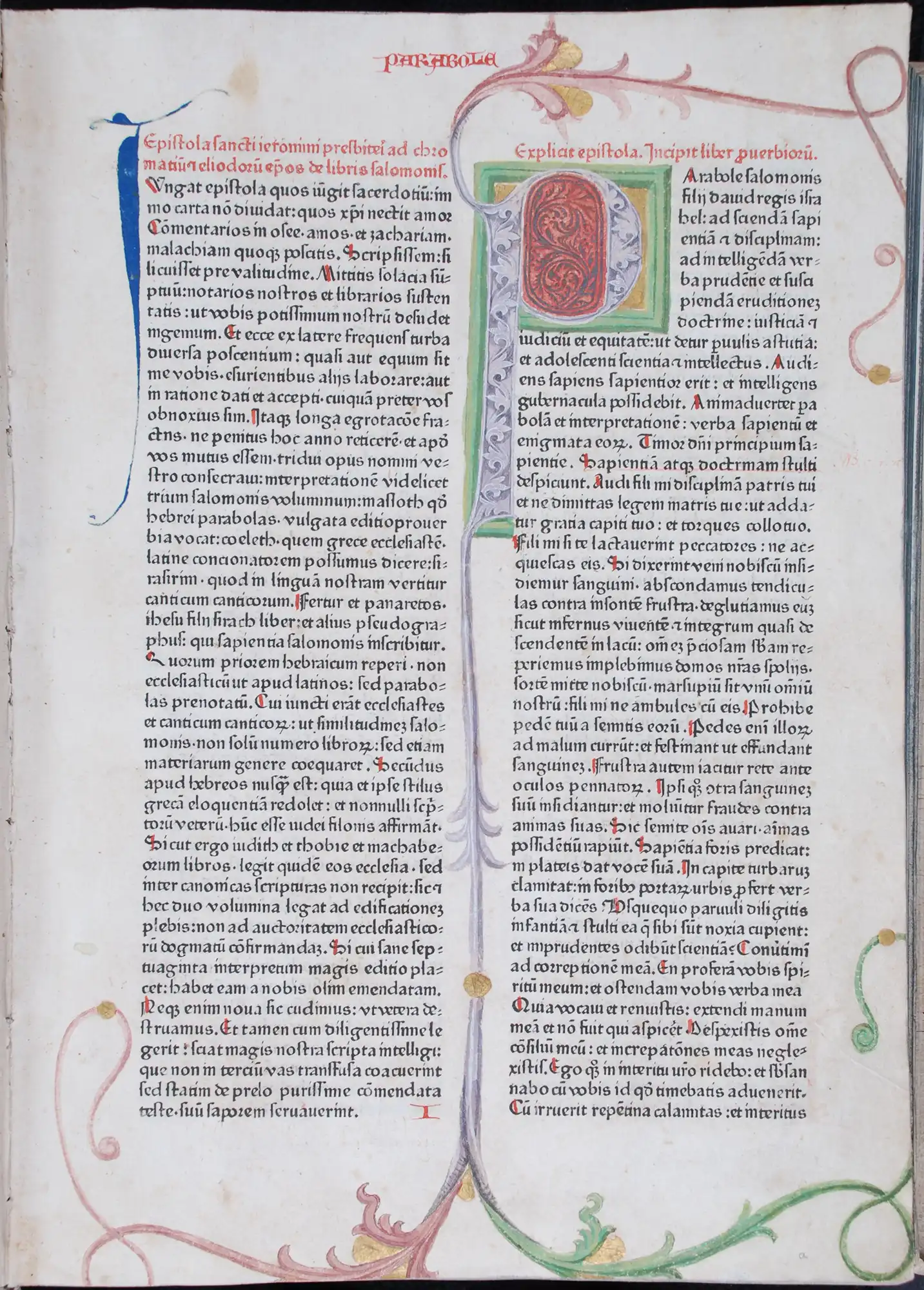
Bible. Latin Vulgate. Mainz: Peter Schöffer, 1472.
Dunedin Public Library holds a good representational collection of incunabula. Incunabula is the plural of the Latin word incunabulum, meaning a cradle. Evolving from its original meaning, incunabulum came to mean a ‘place of birth’ or ‘beginning.’ Hence, the term ‘incunabula’ refers to books that were printed using movable metal type in Europe before the year 1501.
To date these examples of early printing number seven bound books and more than ninety leaves and fragments from Belgium, England, France, Germany, Italy and Switzerland. These items were acquired through donations made by Alfred Hamish Reed (1875–1975), subsequent purchases made by the Library, and recent donations.
The Reed Collection’s oldest printed book, this 1472 Vulgate Bible is a reprint of Fust and Schöffer’s 1462 edition. It is printed in a Gotico-Antiqua type developed by Schöffer and so called because of its intermediate link between Gothic and the humanistic style. Set in two tall columns of 48 lines each, its typographical importance was simply the creation of a more legible and modern rendering of the Bible. It contains hand-painted coloured initials in red and blue.
The 1472 edition is displayed open at the colophon, containing Schöffer’s name and the date expressed in Latin words: Anno d[omi]nice incarnacois Millesimo q[ua]dringe[s]tisimo septuagesimo secu[n]do. In vigilio Mathie ap[ri]li [i.e. 23 Feb].